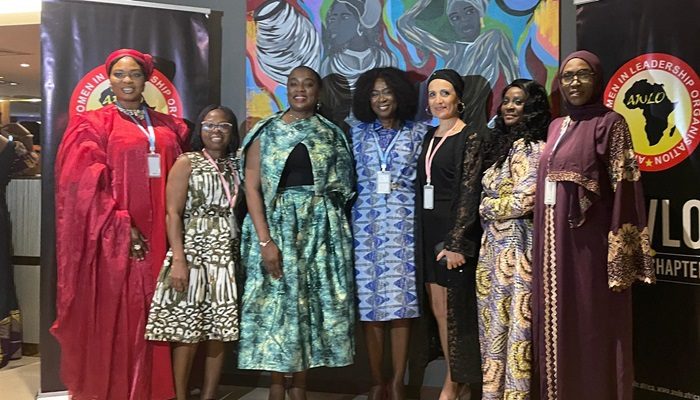The Chief Finance Officer of MTN Ghana, Antoinette Kwofie, has thrown a compelling challenge to women-led businesses across Ghana: enhance your digital skills and harness the power of e-commerce to grow your business and reach international markets.
Her call came during the maiden edition of the African Women in Leadership Organisation (AWLO) Ghana Impact Dinner, held on April 27, 2025, at the upscale Fiesta Residences in Cantonments, Accra.
The event was themed “Strutting into Global Markets: Utilising Traditional & Venture Capital Finance for Business Leverage”, and sought to spark practical and transformative dialogue on finance, regional trade, investor sourcing, and enterprise development.
A strong emphasis was placed on empowering women with the tools and structures needed to scale their businesses beyond local borders.

Digital hesitancy hindering growth potential
Antoinette Kwofie, a prominent voice in corporate finance and female leadership, spoke during a high-level panel discussion that underscored the underutilization of digital tools by women entrepreneurs.
She addressed a growing paradox: while women are visibly active on social media platforms for promoting and selling products, their adoption of more robust e-commerce solutions remains critically low.
“Across Africa, data shows that 60 percent of women-owned businesses are using platforms like WhatsApp and Instagram for sales and marketing.
“However, only about 25% of them are actually engaging with full-fledged e-commerce platforms,” she revealed, pointing to studies that reflect similar trends in Ghana and across the continent.
She warned that this limited use of e-commerce infrastructure significantly restricts the growth potential and scalability of women-led enterprises.
“You can’t talk about scaling into global markets while you are still stuck in the DMs on Instagram,” she remarked, drawing laughter and nods from the audience.

The case for secure digital adoption
Antoinette acknowledged a key reason behind the hesitancy: fear of digital fraud and lack of trust in online transactions.
Yet, she believes this is a challenge that can and must be overcome.
“Many women are fearful of online fraud, but if we could do more by adopting secure payment systems, and embedding secure payment links into our websites, we would unlock new levels of business efficiency and reach,” she explained.
She encouraged women-led SMEs to begin small by integrating trusted global e-commerce platforms into their business models and using existing cybersecurity tools to build customer confidence.
“Digital literacy is not a luxury anymore—it’s a survival skill,” she emphasized.
Empowering women to step into the global arena
Antoinette concluded her remarks with a rallying cry for greater investment in capacity building.
She urged women entrepreneurs to take advantage of the growing number of institutions and organisations—both private and nonprofit—that are offering training and support in digital tools, financial literacy, and market expansion strategies.
“I challenge every woman-led SME to do a little more in building their understanding of digital platforms. By doing so, you can increase your potential customer base and grow your business,” she said passionately.

A platform for purposeful female leadership
The AWLO Ghana Impact Dinner brought together a vibrant mix of female entrepreneurs, investors, business strategists, and industry leaders committed to reshaping the future of women in business leadership.
Beyond its inspirational speeches and practical sessions, the dinner served as a networking springboard for partnerships in finance and enterprise development.
Founded in 2009, the African Women in Leadership Organisation (AWLO) is a nonprofit body dedicated to redefining the role of African women in leadership through high-impact programs such as executive coaching, cross-border mentorships, bespoke training, and visibility platforms.
Its Ghana chapter, launched recently, seeks to catalyse a new era of empowered female leadership rooted in authenticity, bold ambition, and community support.
As the evening drew to a close, one sentiment echoed throughout the room: African women are ready to take their businesses to the world—but only if they equip themselves with the right tools to do so.
And in Antoinette Kwofie’s words, those tools are digital, accessible, and waiting to be used.




